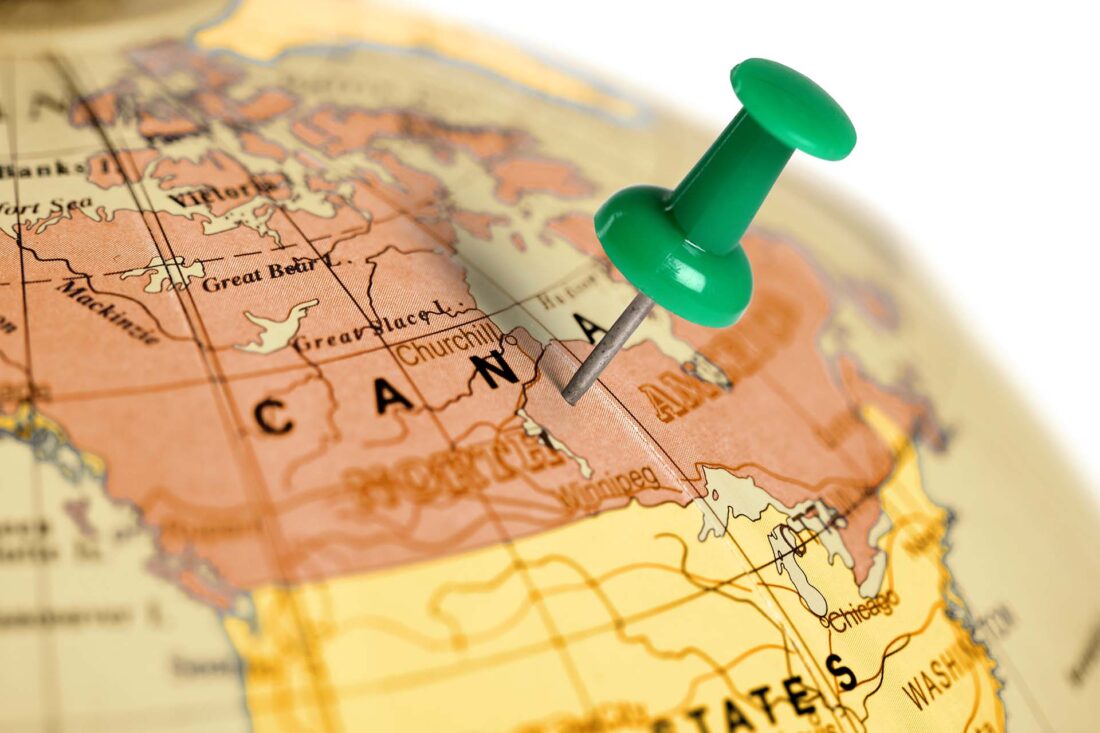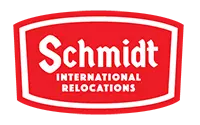

Figuring out how to immigrate to Canada from the USA requires thorough planning and understanding of Canada’s immigration process. Our guide provides a comprehensive overview of the necessary steps for a successful transition. From exploring different immigration programs to understanding the application procedures, we’ll navigate you through the complexities of Canadian immigration policies, ensuring you’re well-prepared for this life-changing move.
How to Immigrate to Canada?
Moving to Canada starts by determining your eligibility under various immigration programs like Express Entry, Provincial Nominee Programs, or family sponsorship. Visit the official Canadian Immigration website to complete an eligibility assessment. If eligible, gather important documents like passports, language test results, and educational credentials.
Create a profile on the Immigration, Refugees and Citizenship Canada (IRCC) website, and if applicable, enter the Express Entry pool. If invited to apply, submit a detailed application with all required documentation. After approval, complete medical exams and background checks. Once your application is approved, prepare for relocation by arranging accommodation and employment.

First Things First – Eligibility Criteria and Assessments
How hard is it to immigrate to Canada? The answer depends on your eligibility. When considering moving abroad, the first crucial step is determining your eligibility across various immigration categories. This country offers multiple pathways, each with its specific criteria. Eligibility often hinges on factors like age, education, work experience, and language proficiency.
Language Proficiency and Education Credentials Are Crucial for the Immigration Process
Prospective immigrants moving overseas are required to demonstrate language skills in either English or French. This is typically done through standardized tests such as the International English Language Testing System (IELTS) for English or the Test d’Évaluation de Français (TEF Canada) for French.
Your test scores play a significant role in your eligibility, as they are a key component in the Comprehensive Ranking System (CRS) score if applying through Express Entry. Another essential element is the educational credential assessment (ECA). This assessment compares your foreign educational credentials to Canadian standards, which is crucial for immigration categories that value educational background.

What’s the Application Process Like?
The application process involves several meticulous steps. Initially, you need to identify the most suitable immigration program for your situation, such as Express Entry, a Canada Provincial Nominee Program, or family sponsorship. After selecting the program, the next step is gathering the necessary documentation. This includes personal identification, educational certificates, language proficiency test results, work experience documentation, and, if applicable, offer letters from Canadian employers.
Once all documents are ready, you must complete the application forms, which vary depending on the immigration program chosen. For those applying through Express Entry, creating an online profile is essential. This profile outlines your skills, experience, and other personal details. Based on this, you may receive an Invitation to Apply (ITA) for Canadian permanent residency.
Financial Planning and Proof of Funds Are Necessary
Understanding and meeting the financial requirements is a critical aspect of the Canadian immigration process. Applicants must demonstrate they have enough money to support themselves and their family members after arriving in the country. This is known as proof of funds, and the required amount varies based on the size of the family.
To demonstrate proof of funds, you can provide bank statements, letters from financial institutions, or investment statements. These documents should show you have immediate access to the funds and that they have been available for at least six months prior to application. It’s important to note that proof of funds is not required for those applying under the Canadian Experience Class or those with a valid job offer in the country.
Careful financial planning is essential, especially if you’re relocating on a low budget. It ensures you have the resources needed to settle in Canada comfortably and meet the criteria set by the immigration authorities. Properly demonstrating your financial readiness is a crucial step toward a successful application for Canadian immigration.

There Are a Few Different Immigration Streams
Canada offers several immigration streams catering to a diverse range of applicants. These include the Express Entry system for skilled workers, the Provincial Nominee Programs (PNPs) for those who have specific skills needed in certain provinces, and family sponsorship for those with close relatives in Canada. Each stream has its unique criteria, application process, and processing times, designed to address various economic and social immigration needs.
Navigating the Express Entry System
The Express Entry system is Canada’s primary pathway for skilled immigrants. It uses a points-based system known as the Comprehensive Ranking System (CRS) to assess and rank candidates. Points are awarded based on factors such as age, education, work experience, and language proficiency. To improve your CRS score, focus on improving language scores, gaining additional work experience, pursuing higher education, or obtaining a Canadian job offer.
Applicants with the highest CRS scores are issued Invitations to Apply (ITA) for permanent residency. Regularly updating your profile to reflect any improvements in skills or experience can significantly increase your chances of receiving an ITA.
Navigating Provincial Nominee Programs (PNPs)
Each Canadian province and territory operates its own PNP, targeting specific skills and occupations in demand in that region. Exploring different PNPs can open additional pathways to immigration, especially if your profile aligns with a province’s labor market needs.
To secure a provincial nomination, which can significantly boost your CRS score in the Express Entry pool, tailor your application to meet the specific criteria of the PNP you’re applying to. This may involve obtaining relevant work experience, breaking the language barrier and improving your French, or building connections within the province through job offers or community involvement. Securing a nomination from a PNP not only enhances your Express Entry profile but also aligns your skills with the region’s economic needs.

After the Application – Preparing for the Move
Once you receive your visa approval, the next phase is preparing for your move. Start by researching and planning for your arrival, which includes understanding Canadian healthcare and banking systems and learning about the local culture and weather conditions. It’s advisable to arrange for temporary housing before you leave, giving yourself a base while you search for more permanent accommodation.
You should also create a moving abroad checklist for essential tasks upon arrival, such as applying for a Social Insurance Number (SIN), opening a bank account, and acquiring a local phone number. It’s helpful to connect with local and expat communities, as they can provide valuable guidance and support during your initial days of living in another country.
Finding Housing in Your New Country Can Take a While – Start on Time
Securing housing can be a time-consuming process, so start your search early to avoid last-minute hustle. Research different neighborhoods to find one that suits your lifestyle and budget. Utilize online real estate portals, local classifieds, and real estate agents specializing in rentals or property sales. Consider factors like proximity to work, schools, public transportation, and community services.
Temporary accommodation options like short-term rentals or Airbnbs can be useful while you look for your permanent new home. Once in the new country, take the time to visit different areas and properties to get a feel for where you would like to live. Remember, settling in Canada is a gradual process, and it’s essential to be patient and flexible during this transition.

Hiring Movers for Moving Abroad Is a Crucial Step
Hiring professional movers when moving internationally is a crucial step in ensuring a smooth transition to your new city. Moving across borders involves more complexities than a local or domestic move, encompassing aspects like international shipping and customs regulations. An international moving company can navigate these challenges efficiently, reducing the relocation stress and uncertainty often associated with such a significant move.
Benefits of Hiring Professional Movers for International Relocation
Choosing the right moving company is a decision that can significantly affect your relocation experience. It’s important to research and select a reputable company with positive reviews and a track record of successful international moves. The right moving services will ensure the safe transport of your belongings. There are a few important benefits of relocating with professional movers by your side:
- Expertise in customs and regulations – Professional movers are familiar with the intricacies of customs procedures and international moving regulations, ensuring your belongings comply with the laws of your destination country.
- Safe and secure packing – They have expertise in packing assistance for long-haul transit, reducing the risk of damage during the relocation.
- Time-saving and convenient – Outsourcing the packing and moving to professionals saves you considerable time and effort, allowing you to focus on other aspects of your relocation, like visa procedures, finding housing, and preparing for life in the new country.
- Reliable transit and tracking – Professional movers provide reliable shipping and tracking of your belongings, offering peace of mind about the safety and arrival of your items.
- Insurance and liability coverage – They typically offer insurance options to protect your belongings against loss or damage during transit.
Schmidt International Relocations Is a Top-Rated Company – Contact Us to Help You Relocate Abroad
Schmidt International Relocations stands as a top-rated company in the realm of international moving services. With our extensive experience and commitment to excellence, we are dedicated to making your relocation abroad as seamless and stress-free as possible.
Our team of professionals is equipped to handle every aspect of your relocation. We offer tailored solutions to meet your specific needs, ensuring a smooth transition to your new country. Contact us today to get started on your journey, and let us help you relocate to Canada with confidence and peace of mind.
FAQ
How Do I Immigrate to Canada?
To immigrate to Canada, you typically follow a multi-step process. First, determine the most suitable immigration program for you, such as Express Entry, Canada Provincial Nominee Program (PNP), or family sponsorship. Check the eligibility requirements for the chosen program and gather all necessary documents. Create an online profile if applying through Express Entry and undergo a points-based assessment.
If applying for a PNP, apply directly to the province or territory. If sponsored by a family member, they must submit an application on your behalf. Once selected, submit a complete application to the Immigration, Refugees, and Citizenship Canada (IRCC). If your application is approved, you’ll receive a permanent resident visa.
How Long Does It Take to Immigrate to Canada?
The duration of the Canadian immigration process varies depending on the immigration program. For Express Entry, processing times are typically around six months once an application is submitted. However, other programs like family sponsorship or Provincial Nominee Programs can take longer, sometimes over a year. The time frame is also influenced by the completeness of your application and the processing capacity of immigration offices.
Can I Bring My Family While Immigrating to Canada?
Yes, you can bring your family. Most Canadian immigration programs allow you to include your spouse or common-law partner and dependent children in your application. The family reunification policy is a cornerstone of Canada’s immigration program, and there are specific pathways, like the Family Sponsorship program, designed to facilitate this.
What Are the Job Prospects for New Immigrants in Canada?
Job prospects for new immigrants in Canada are generally promising, especially in sectors with high demand, like technology, healthcare, and engineering. However, success in the job market can depend on factors like your professional qualifications, English or French language proficiency, and the ability to adapt your skills to the Canadian market.
If you’re wondering how to immigrate to Canada without a job offer, many immigrants benefit from various settlement services and job-search assistance programs offered by the government and local communities.
Are There Any Language Requirements for Canadian Immigration?
Yes, Canadian immigration typically requires proof of proficiency in either English or French, the country’s two official languages. Language proficiency is assessed through standardized tests such as IELTS (for English) or TEF Canada (for French). The required proficiency level varies by immigration program.














